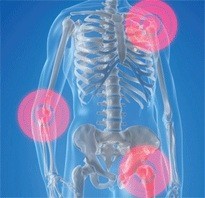Biological disease modifying anti-rheumatic drugs (bDMARDs) have revolutionized the management of rheumatoid arthritis (RA) and other inflammatory diseases. Over two decades, their use has risen exponentially but their significant cost has contributed to increasing healthcare expenditure in many countries. Biosimilar development is an opportunity to lower drug expenses and optimize use. This review detailed the current state of biosimilars in rheumatology, including their development, trial data, economic impact and logistical considerations [1].
Biosimilars are biological products developed to resemble their originator as closely as possible. Unlike small molecule generics, biologicals are large structures manufactured in living cells with natural variability. Therefore, strict regulatory processes have been created to ensure equivalent efficacy and safety of biosimilars and their originators. Biosimilar development differs greatly from their originator biologicals. Whereas originators need multiple phase III randomized clinical trials (RCTs), biosimilars are extensively tested in vitro followed by minimal RCT data. Biomimics or intended copies are medications developed in countries without formal regulatory control. To date, biosimilars of three tumour necrosis factor (TNF) inhibitors (infliximab, etanercept, adalimumab) have been approved by the European Medicines Agency and the US Food and Drug Administration.
The landmark biosimilar trials were PLANETRA and PLANETAS [2] that compared an infliximab biosimilar to infliximab in RA and ankylosing spondylitis (AS) cohorts, respectively, which had had inadequate responses to methotrexate, demonstrating equivalent efficacy and comparable safety. There have since been similar RCTs demonstrating the efficacy and safety of biosimilars of etanercept and adalimumab.
Within rheumatology, there has been concern about the immunogenicity of biosimilars. The major biosimilar trials have demonstrated no significant differences between biosimilars and originators in terms of anti-drug antibody (ADA) production. SB4, a biosimilar of etanercept, did cause less ADA production but this did not result in increased efficacy.
bDMARDs have reduced the global health burden of autoimmune rheumatic disease at a significant financial cost. Their use therefore remains restricted by governments, with significant international variations of prescribing limitations and drug costs. Currently, biosimilars are approximately 15−30% cheaper than originators. Economic modelling has predicted that increasing availability of biosimilars should lead to worldwide cost-reductions numbering in the billions of dollars.
There are several logistical aspects to consider with biosimilar use in rheumatology. Switching between biosimilars and originator products appears to maintain efficacy, but long-term safety and altered immunogenicity is still being studied. In some countries, pharmacists can substitute a bDMARD for a biosimilar as they might with generic non-biological medicines. The traceability of previous bDMARD treatments and adverse events therefore remains a concern and will require better systems for monitoring.
There is no doubt that bDMARDs have dramatically improved treatment outcomes in rheumatology. The approved biosimilars appear efficacious and safe, with longer-term data now becoming available [3, 4]. There are currently applications for approval of biosimilars for most existing bDMARDs [5]. The introduction of biosimilars will hopefully reduce costs and allow broader access to these life-changing treatments worldwide.
Conflict of interest
The authors of the research paper [1] did not provide any conflict of interest statement.
Abstracted by Adam Rischin, MD, The Alfred Hospital, Melbourne, Australia.
References
1. Rischin A, Östör AJ. Update on biosimilars in rheumatology. Inflammopharmacology. 2017;25(2):177-84.
2. GaBI Online - Generics and Biosimilars Initiative. Switching to biosimilar infliximab in IBD patients [www.gabionline.net]. Mol, Belgium: Pro Pharma Communications International; [cited 2018 May 4]. Available from: www.gabionline.net/Biosimilars/Research/Switching-to-biosimilar-infliximab-in-IBD-patients
3. GaBI Online - Generics and Biosimilars Initiative. NOR-SWITCH study finds biosimilar infliximab not inferior to originator [www.gabionline.net]. Mol, Belgium: Pro Pharma Communications International; [cited 2018 May 4]. Available from: www.gabionline.net/Biosimilars/Research/NOR-SWITCH-study-finds-biosimilar-infliximab-not-inferior-to-originator
4. GaBI Online - Generics and Biosimilars Initiative. Danish infliximab switching study shows no difference [www.gabionline.net]. Mol, Belgium: Pro Pharma Communications International; [cited 2018 May 4]. Available from: www.gabionline.net/Biosimilars/Research/Danish-infliximab-switching-study-shows-no-difference
5. GaBI Online - Generics and Biosimilars Initiative. Biosimilars applications under review by EMA – January 2018 [www.gabionline.net]. Mol, Belgium: Pro Pharma Communications International; [cited 2018 May 4]. Available from: www.gabionline.net/Biosimilars/General/Biosimilars-applications-under-review-by-EMA-January-2018
Permission granted to reproduce for personal and non-commercial use only. All other reproduction, copy or reprinting of all or part of any ‘Content’ found on this website is strictly prohibited without the prior consent of the publisher. Contact the publisher to obtain permission before redistributing.
Copyright – Unless otherwise stated all contents of this website are © 2018 Pro Pharma Communications International. All Rights Reserved.








 0
0











Post your comment